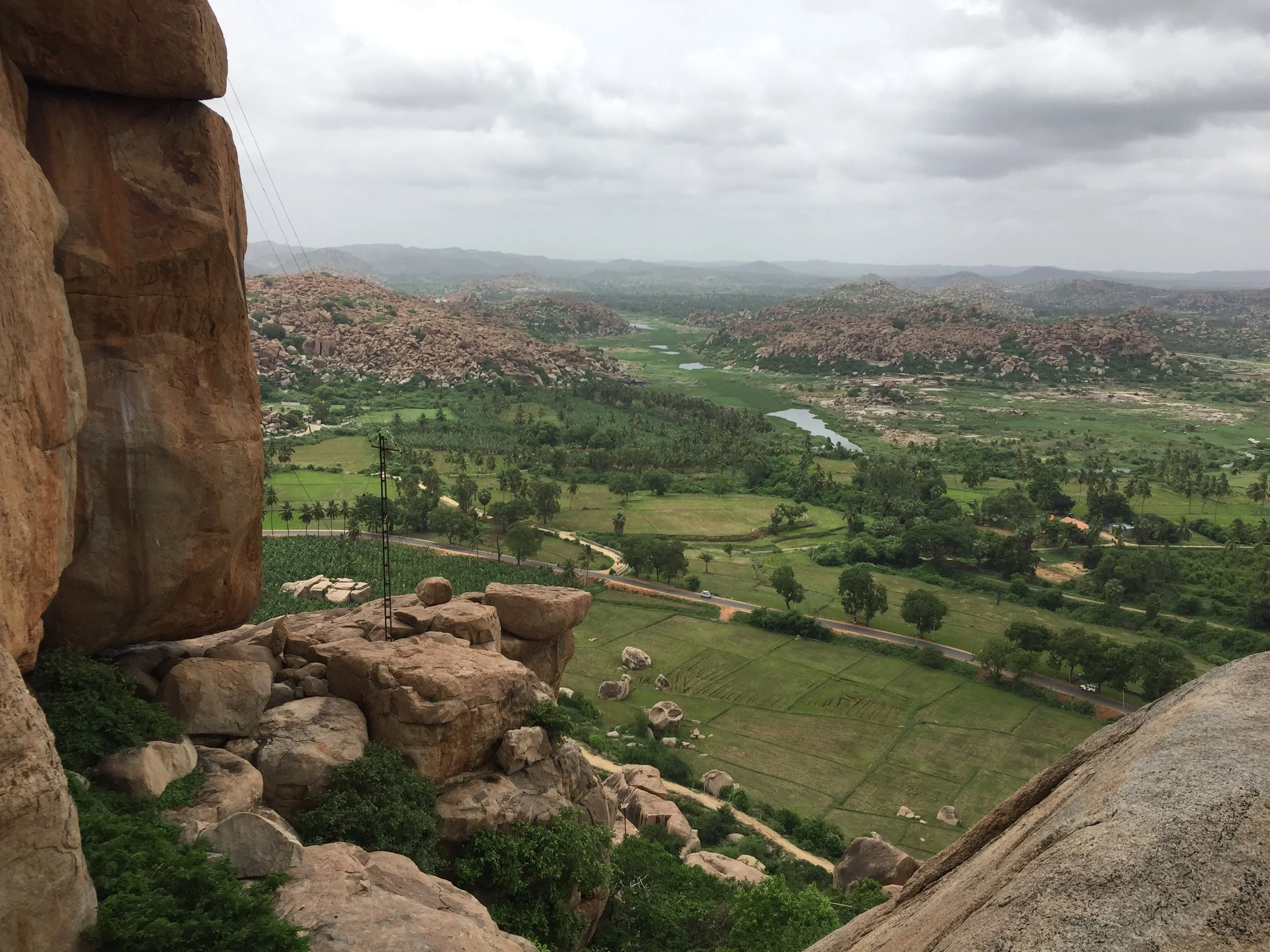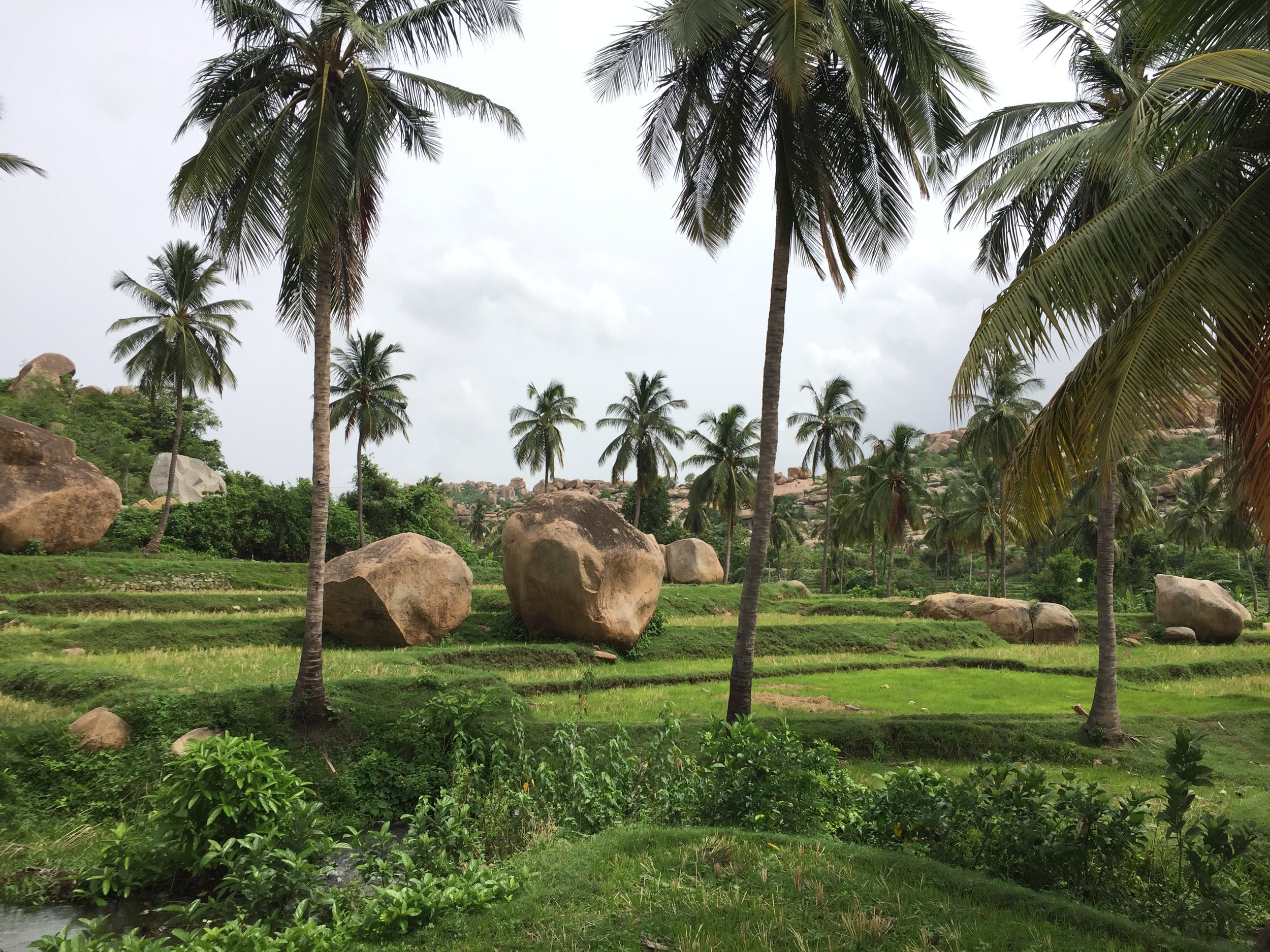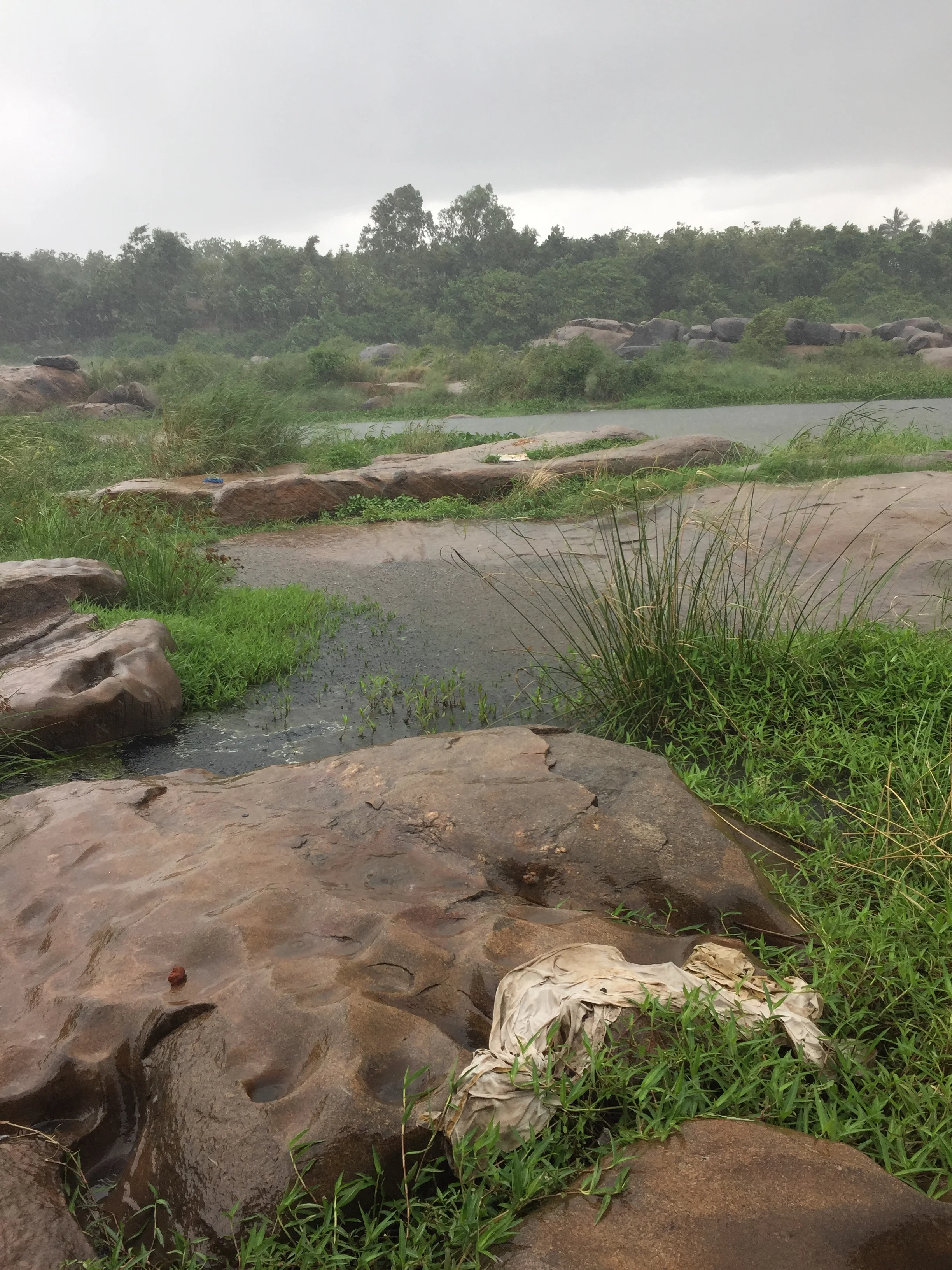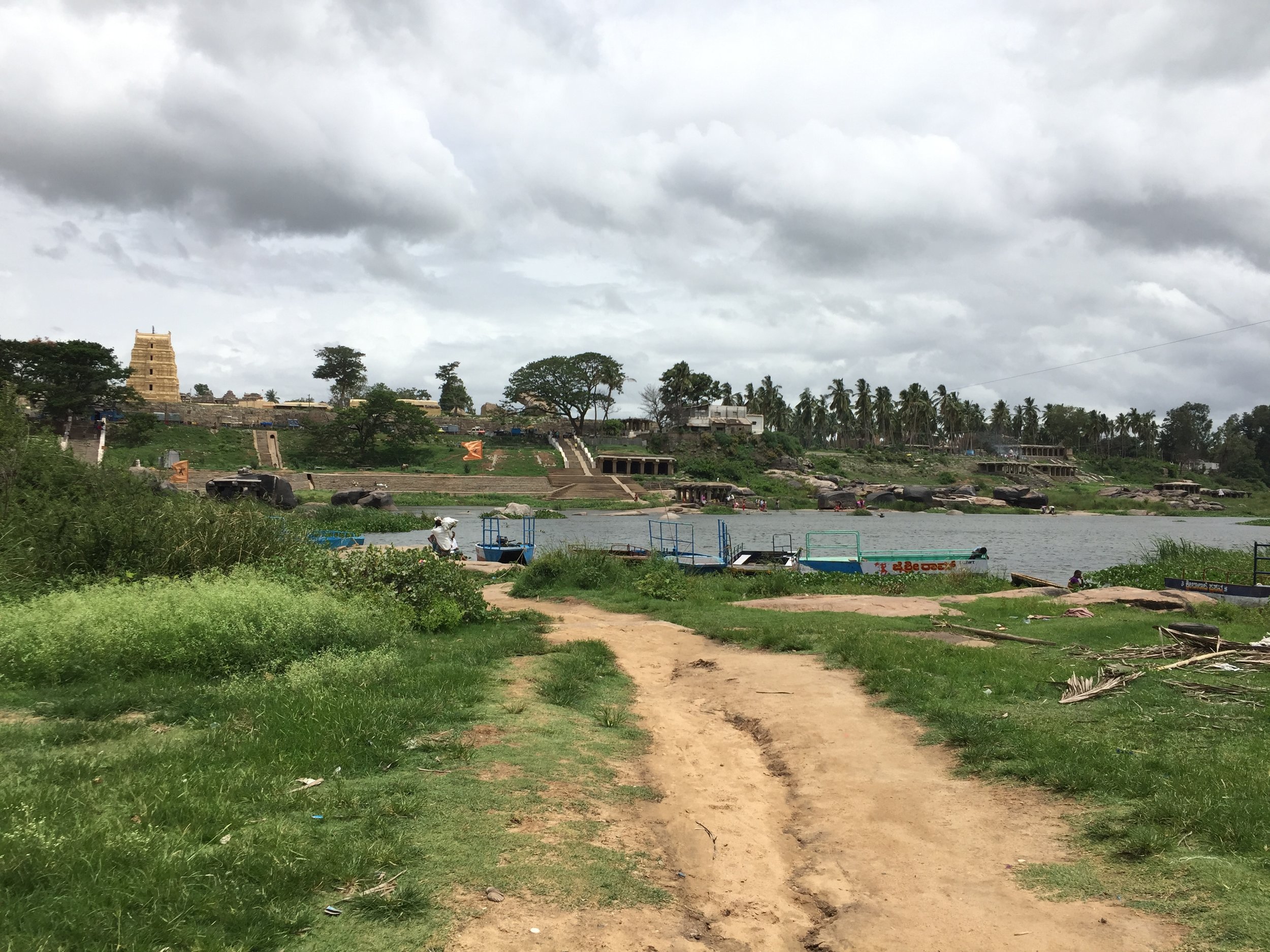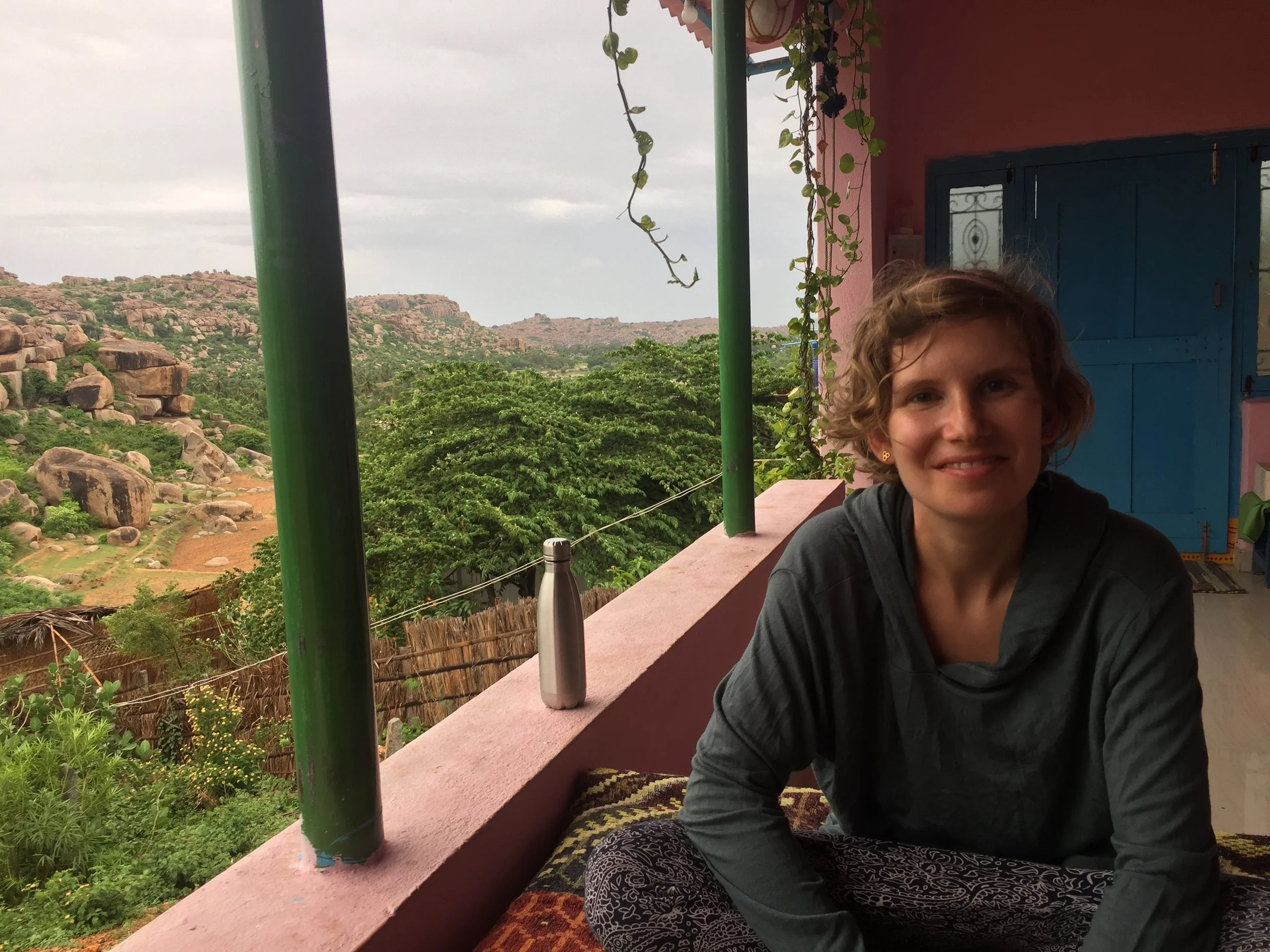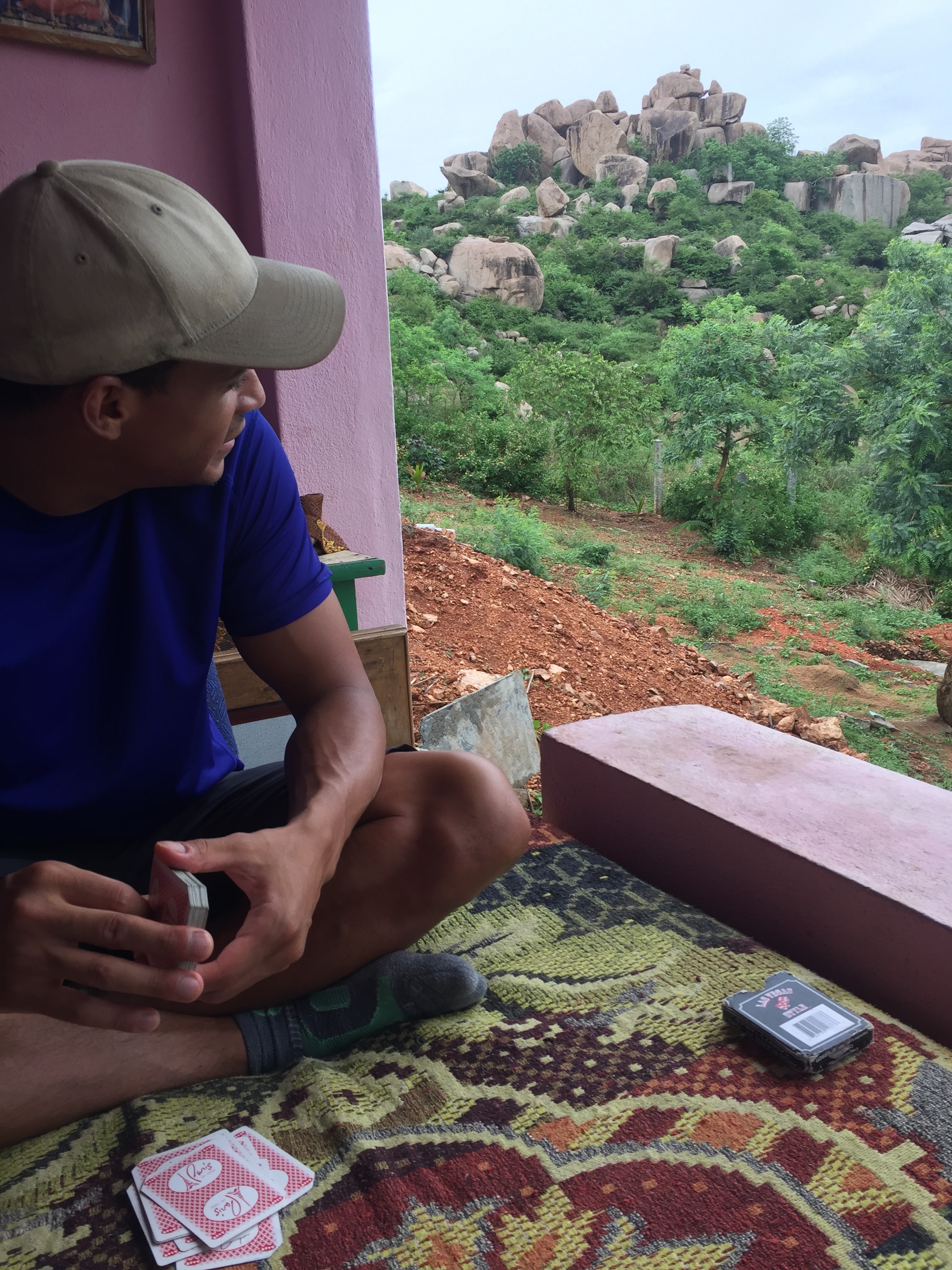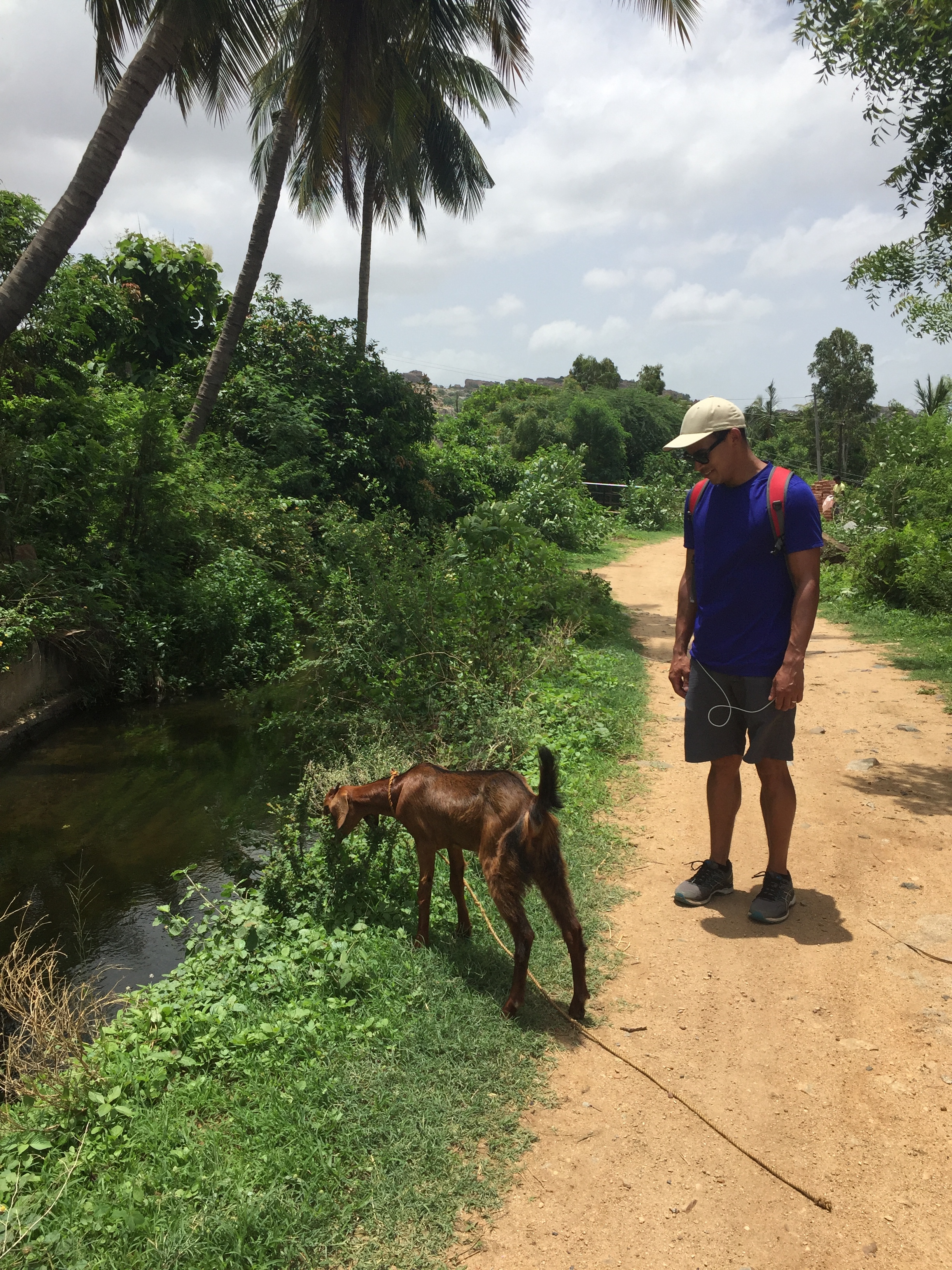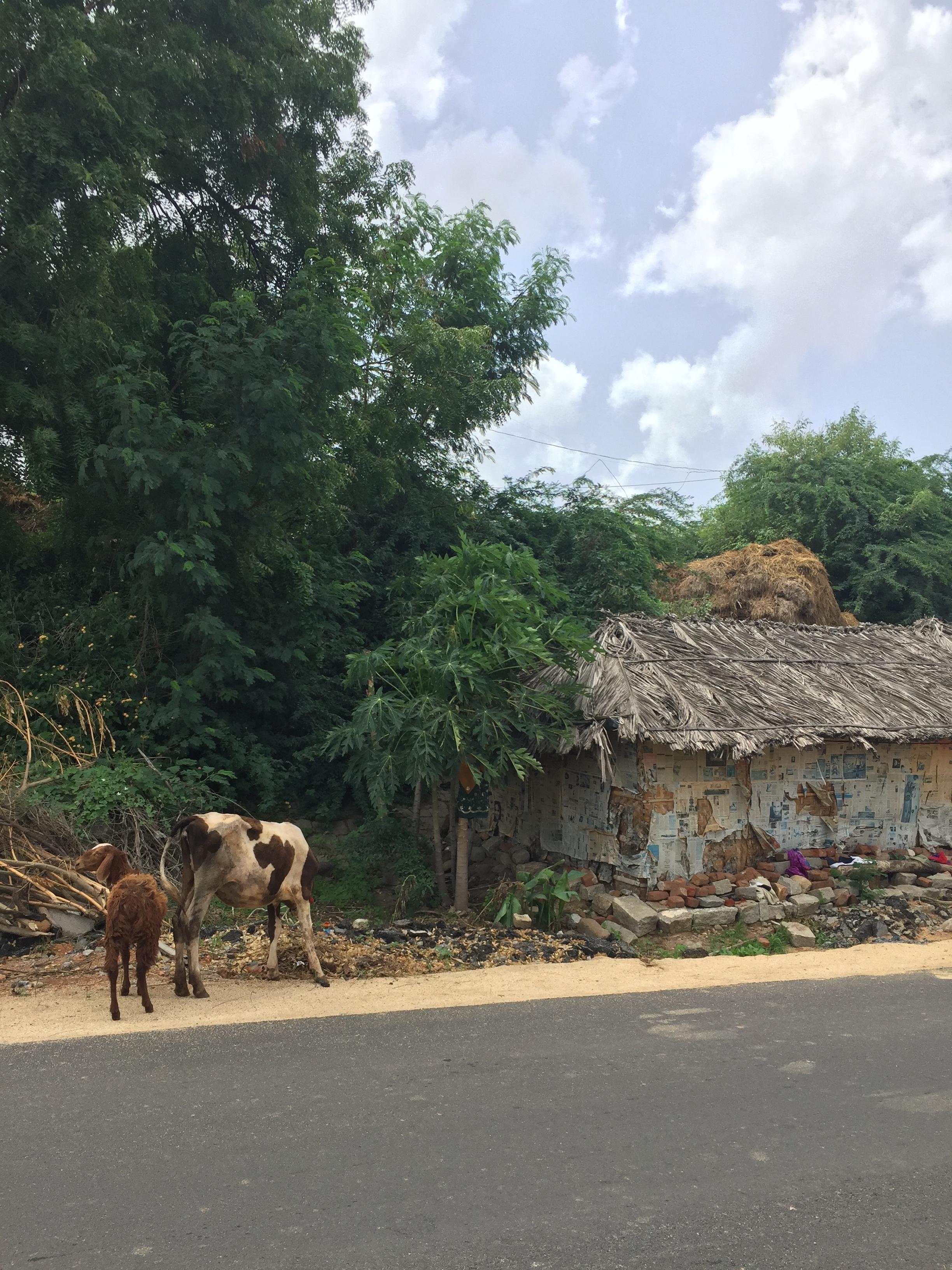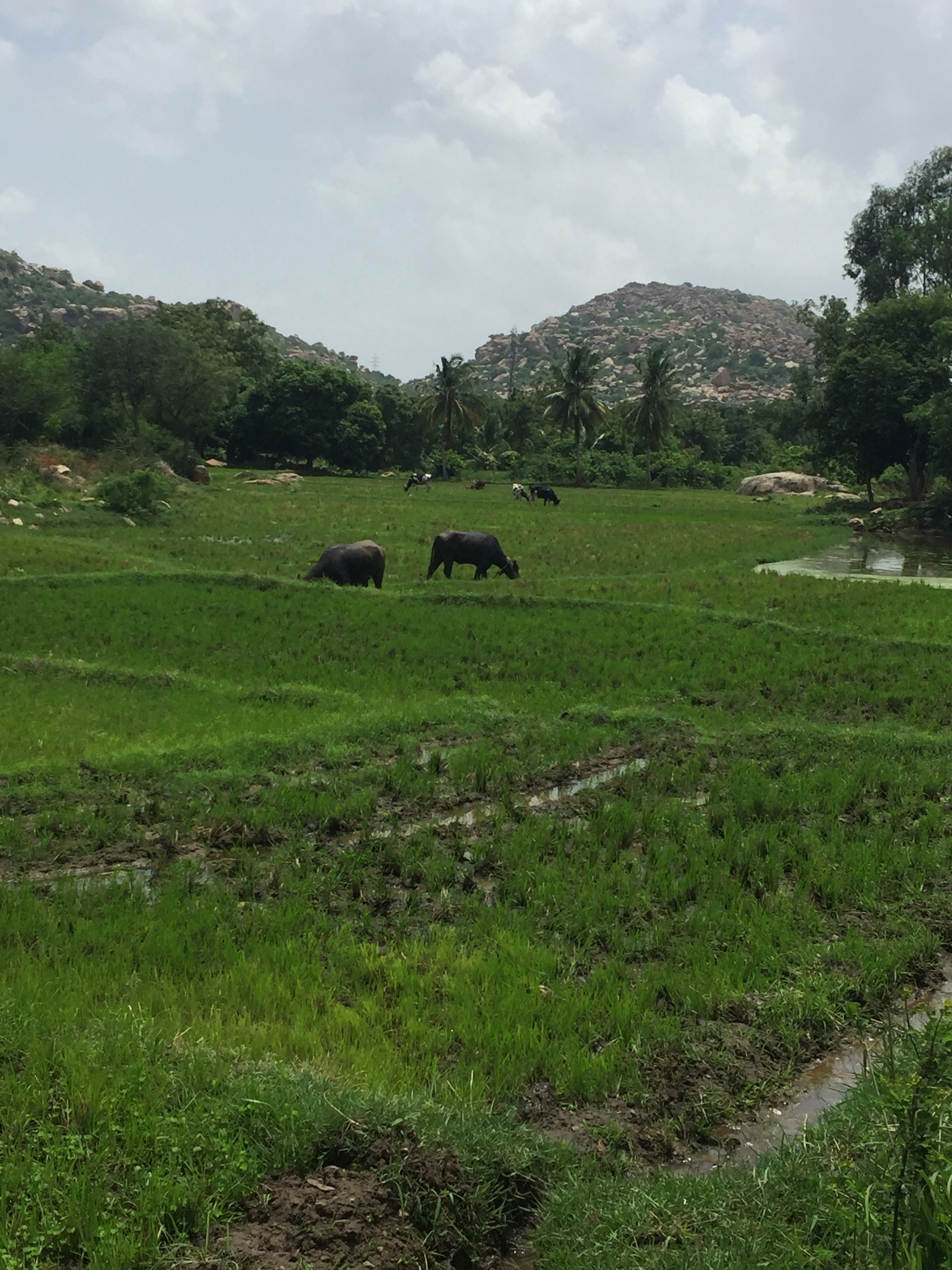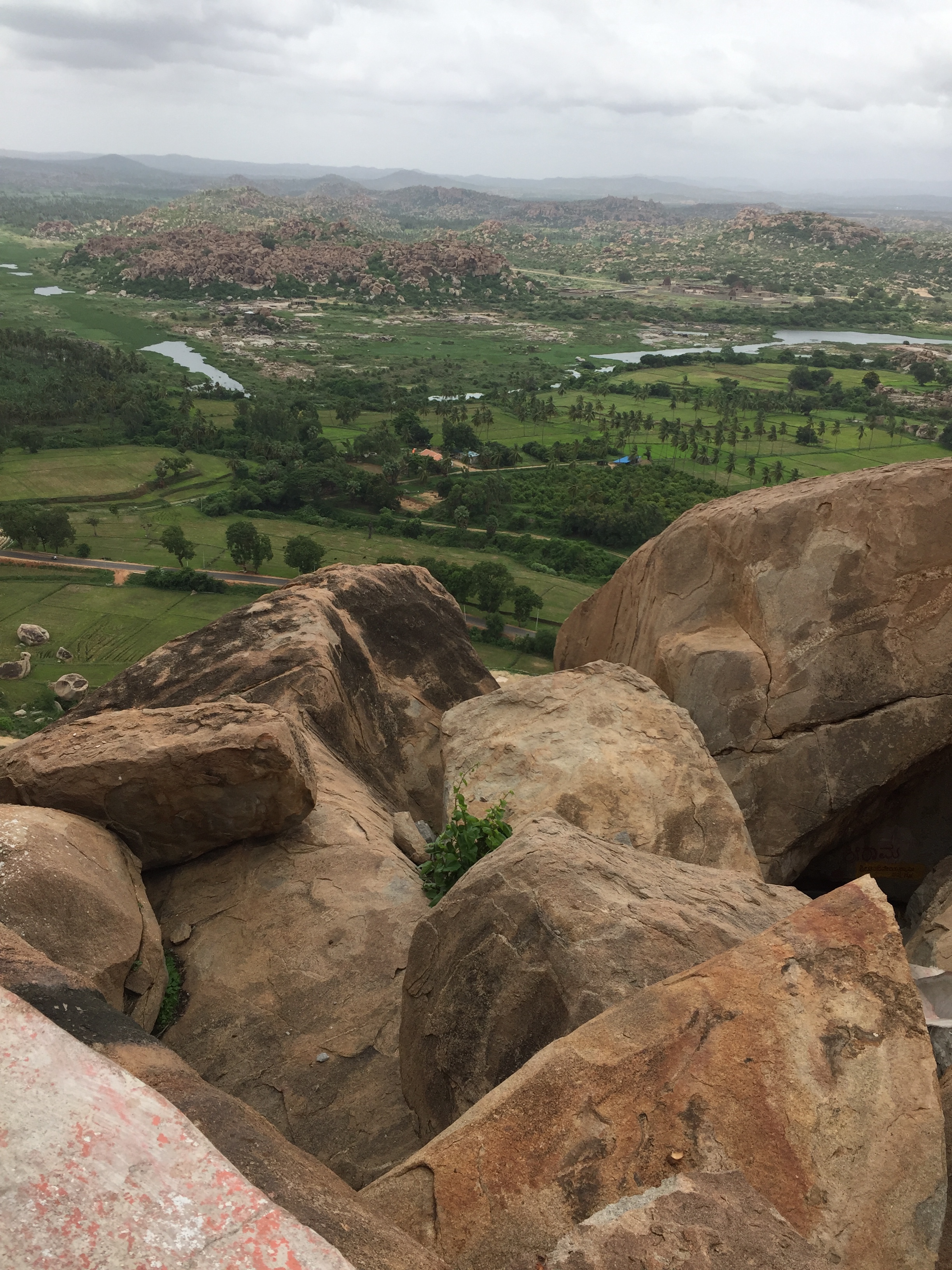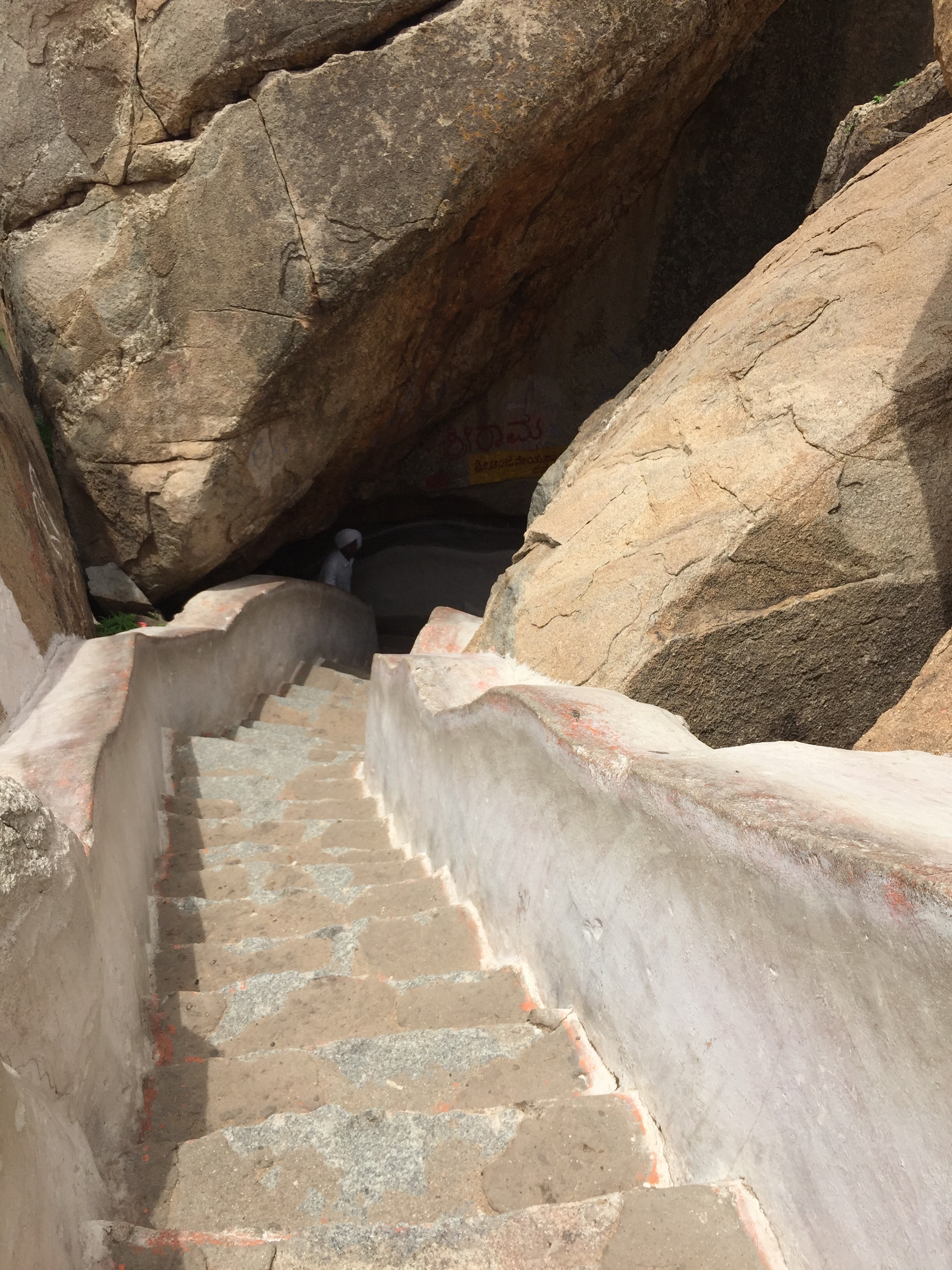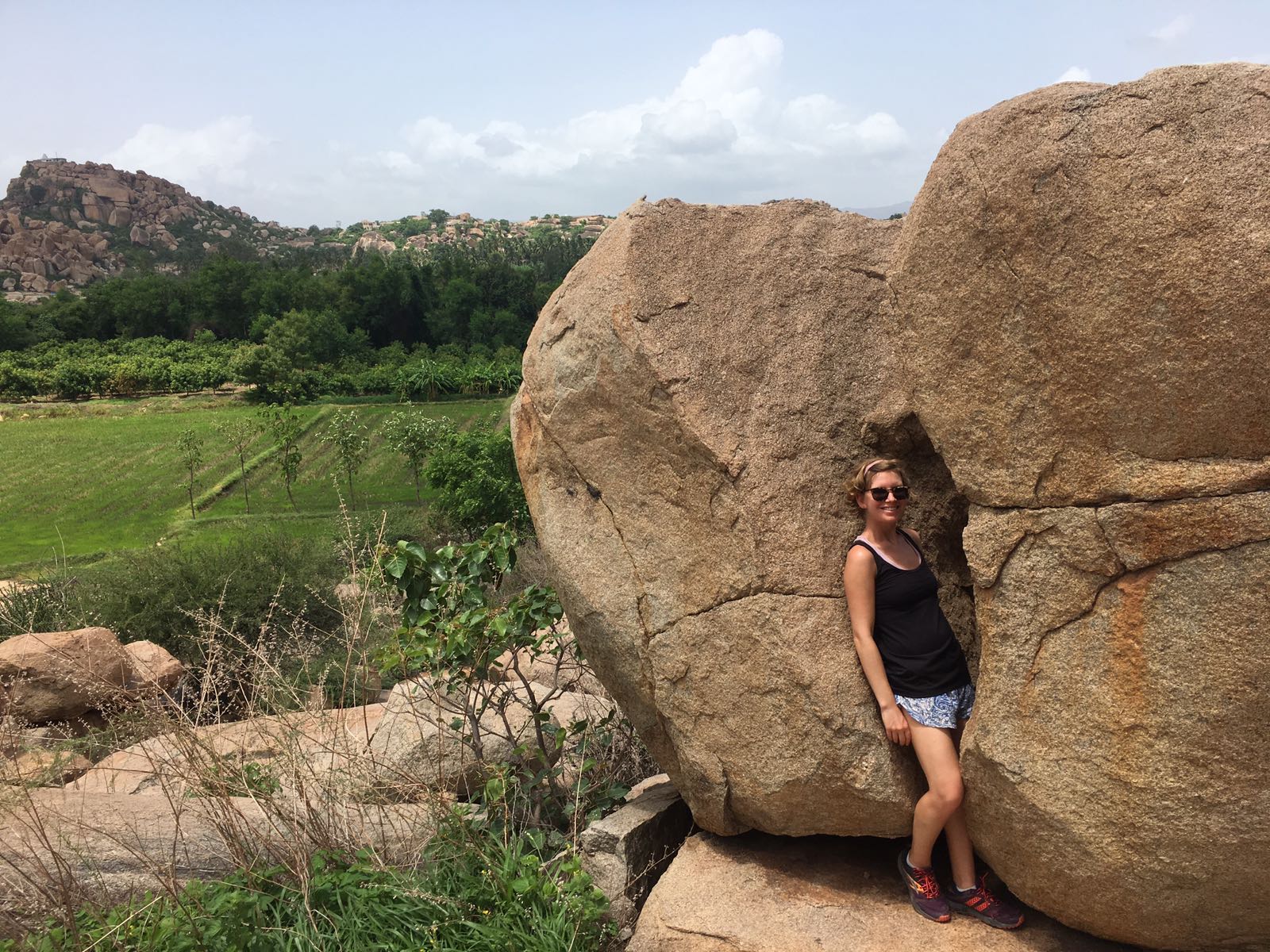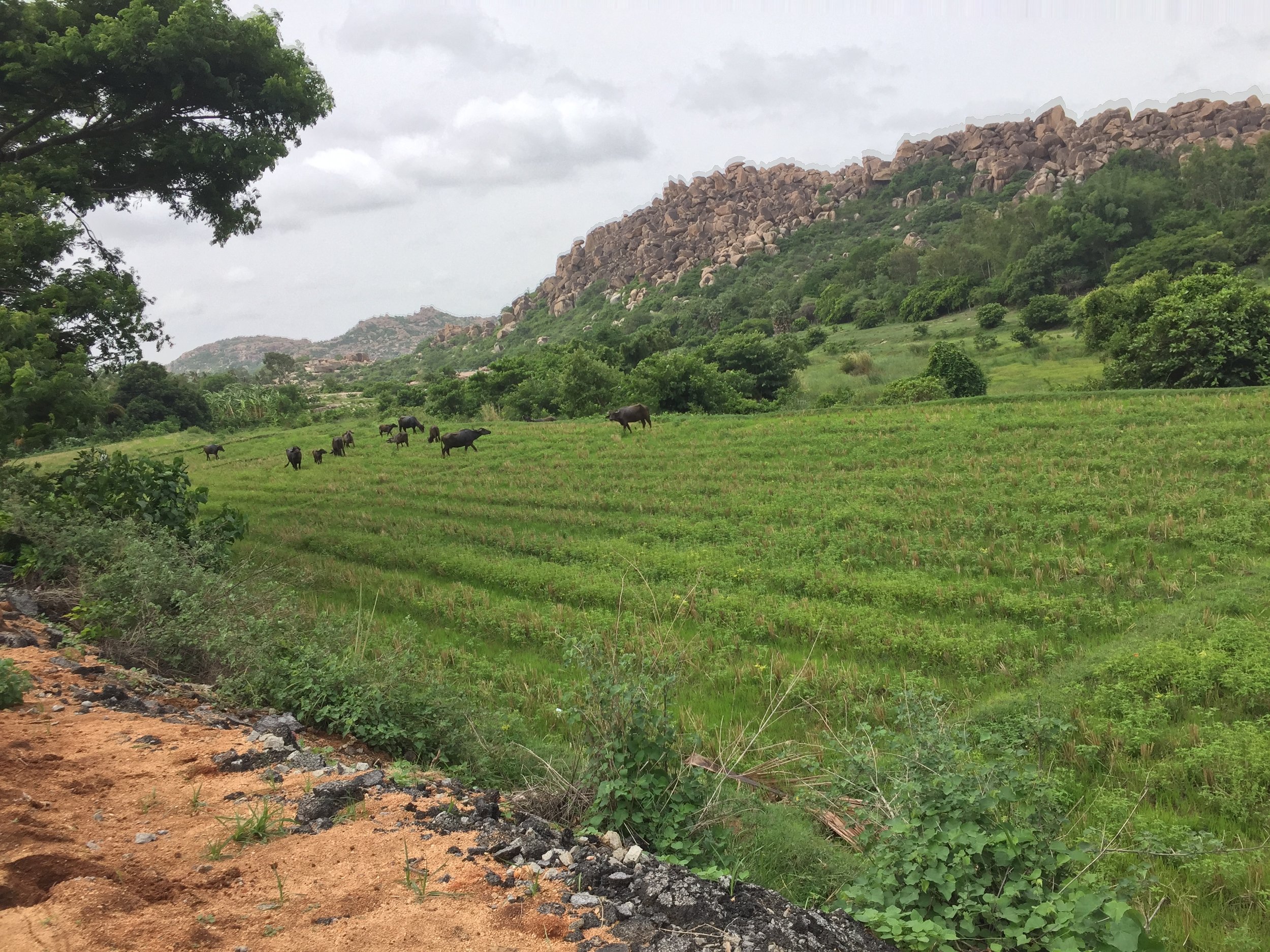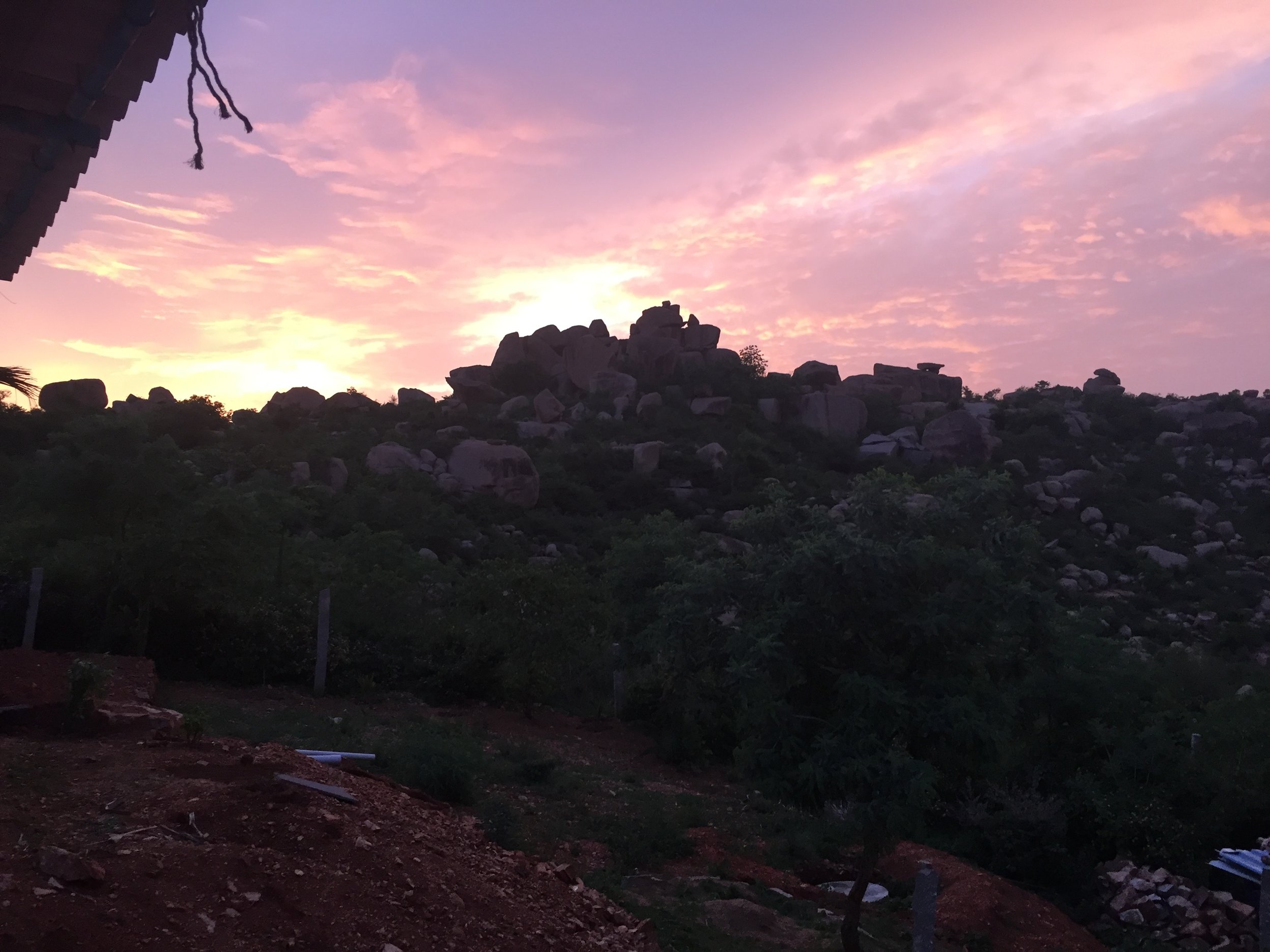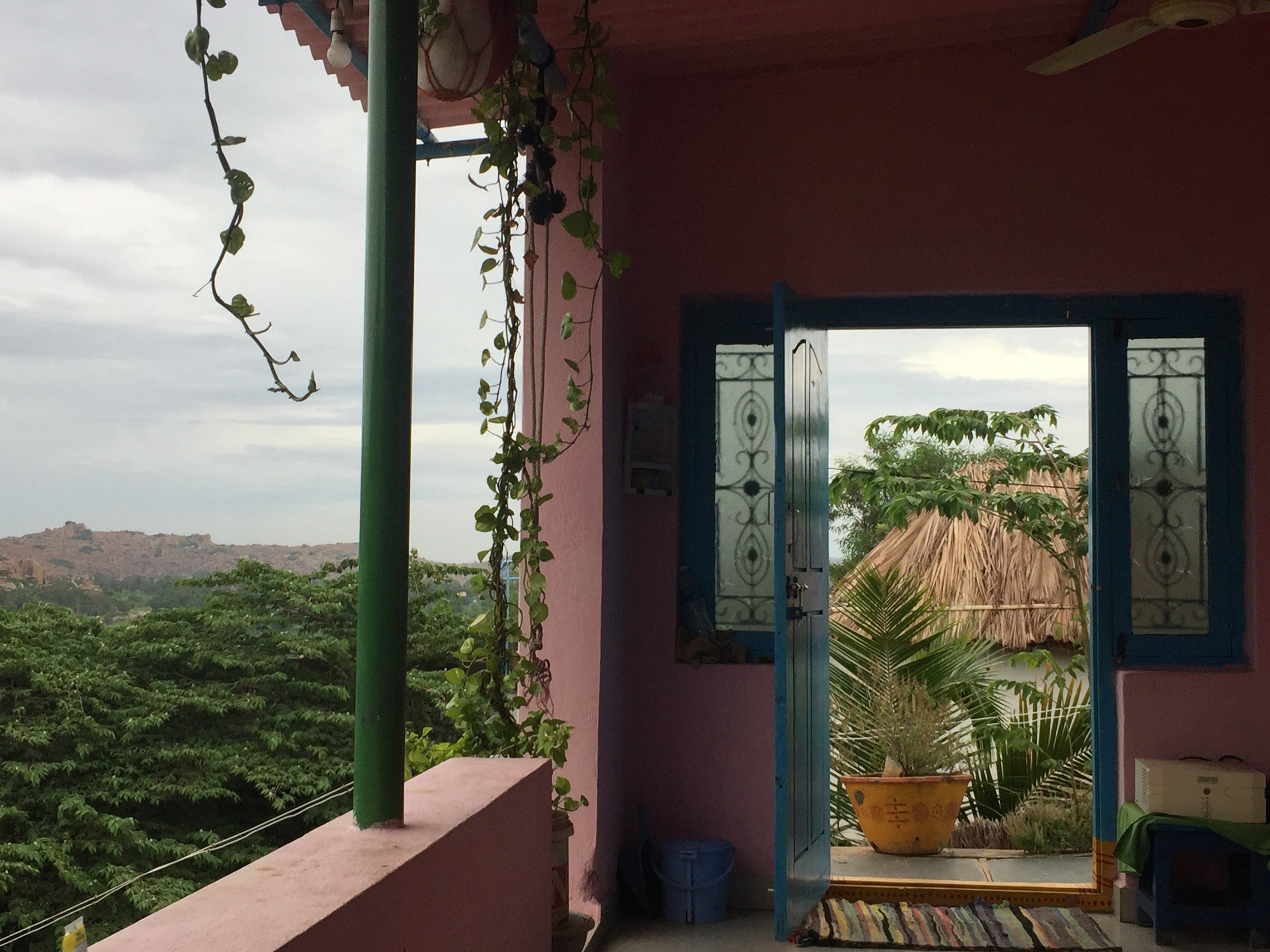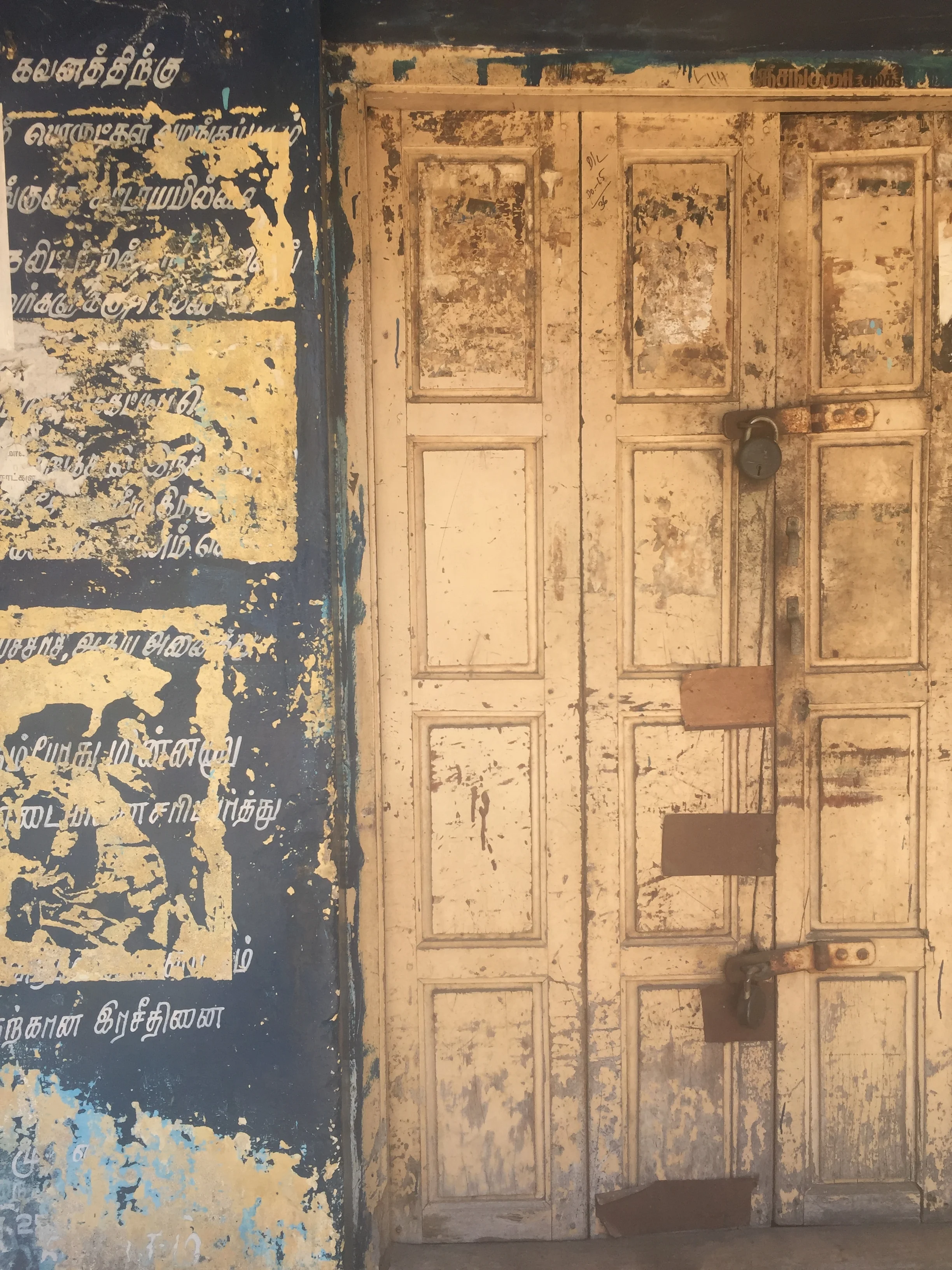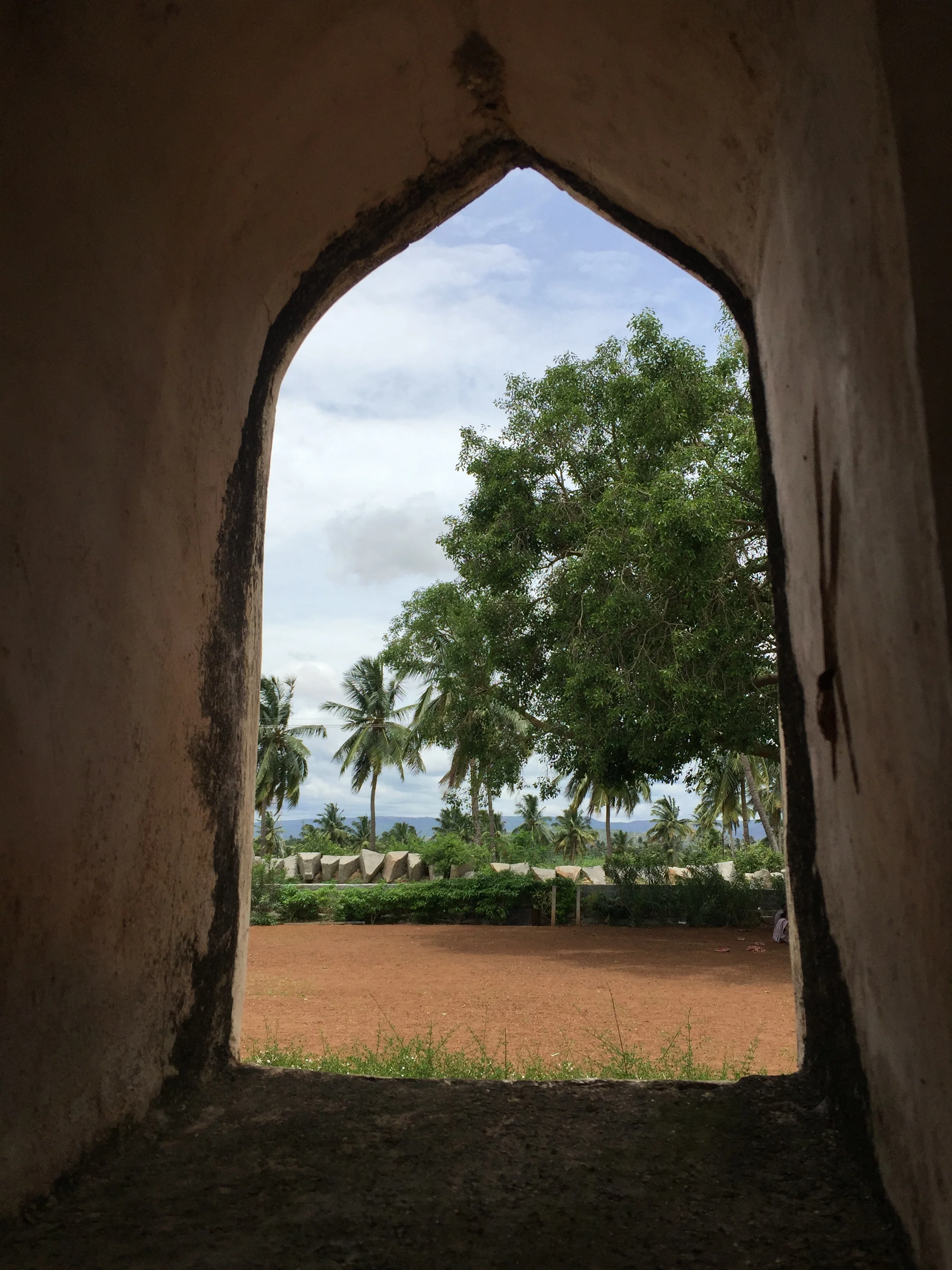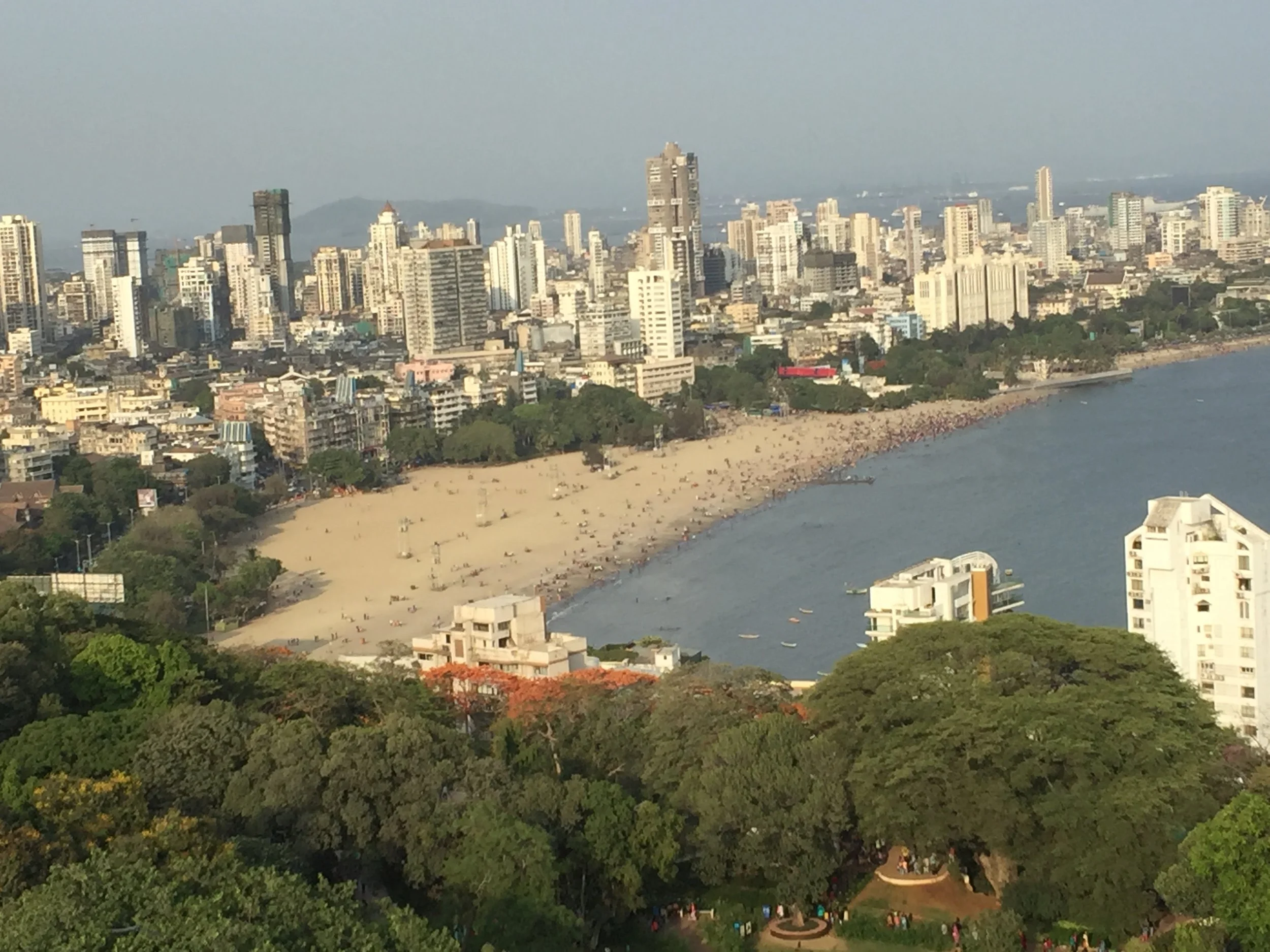Hampi: The Other Side
The other side of Hampi felt like time traveled to another world. Given that June was the beginning of monsoon season, it also translated to the off season. The quiet, rural villages among boulder fields and lush rice paddies were nothing like the ancient ruins just across the river.
The narrow Tungabhadra River divides the two vastly different terrains.
We brought our packs, prepared to stay three nights on the other side, called Anegundi. We navigated the already slick rocks, when it started to rain, which quickly turned into a downpour.
We found coverage under a rock, where we waited for the only boat to come fetch us. The boat only makes a trip once it's filled, and with the rain, it was likely going to be a while.
After what seemed like eternity, a small, handcrafted blue boat pulled up and locals piled out.
Pricing was subjective and ranged from 20 Rupees (29 cents) to 100 Rupees ($1.45 USD) per person.
The boat ride was a mere three minutes long, but may as well have jettisoned us back in time.
Whereas we were constantly turning down rickshaw offers around the Virupaksha Temple, now there was not one rickshaw in sight.
In fact, no one was in sight.
The cousin of our airbnb host took me and Will on the back of his scooter in individual trips. The typically five minute ride took a couple of hours, as we had to stop for cover when the torrential rain started again. I followed a woman into her kitchen while we waited out the rain, not knowing when Will would come.
It's only a 20 minute walk from the main town by the river. But the further we winded up the road, the remoteness of our accommodations set in.
Our airbnb was a defining aspect of our stay. For better or worse.
There was no power when we arrived due to the rain, which was obvious to everyone but us.
There was a short spigot in the restroom with cold water to bathe. And fortunately, a mosquito net over our bed, since they were rampant.
With no power or internet, we became accustomed to playing cards. A lot of cards.
There's no denying that the views were stunning. And our place felt like a five star accommodation compared to our neighbors. We felt humbled and grateful.
That evening, we told we were having egg curry, fried rice, and naan for dinner prepared by the owner's mother. We walked a couple houses down to her kitchen.
It was a small window into another life. As the power was intermittent, I held my phone over the stove as a flashlight.
Watching dinner being prepared was only slightly disconcerting. The entire salted egg, in the egg shell, was cooked with the okra in the curry. We later saw the dishes being rinsed in the local stream, and as you can imagine, Westernized plumbing techniques were limited. Without any table, we sat cross-legged outside the kitchen. Nonetheless, the meal itself was very tasty. But after, I looked at Will and asked if we were going to get sick. He said, we'll see.
We didn't. And we proceeded to have dinner there each night, as it was the only viable option. It always included some kind of curry and/or daal served with fried rice and homemade naan.
Breakfast in the morning included a sickly sweet white chocolate and banana pancake with chai. It was the only option available. But again, quite tasty.
Since there weren't any must-see tourist destinations, we enjoyed exploring on foot with no set agenda.
And there was plenty be surprised by.
Everyone and everything coexisted. Traffic seamlessly weaved around livestock.
Unimaginable boulders were randomly scattered throughout verdant rice paddies.
On the way to the town, we passed an ancient, stone aqueduct. Hampi is connected through several waterways and canals.
The intricate system carried water from palaces to temples to water tanks, in addition to being used for agricultural purposes.
Although the roads were typically quiet, there was an occasional procession marching with accompanying music.
Although, typically pedestrians were few and far between.
We weaved in and out of small family villages along the way.
We were never alone, as we were surrounded by goats, cows, and many animals we simply didn't recgonize.
However, we did become celebrities of sorts. Or, I did at least. Whereas Will was all the rage in Vietnam, due to his so-called Obama resemblance, my fair skin was the rarity in Hampi. Parents would ask if their children could shake my hand, take a picture.
Which was sweet. But it got to the point, where we couldn't walk for a few minutes without getting stopped.
It escalated to us walking down a quiet road, with cars coming to a screeching halt, and a half dozen full grown men piling out of a tiny car. Selfie, selfie, they'd ask. I didn't mind the kids, but the grown men became a bit much. But we always agreed, not quite knowing what would become of all these photos.
On one particularly warm day, came across the Anjaneya Temple.
We climbed the 570 steps up the Anjaneya hill.
There was little signage, but we followed the vertical path, crouching under boulders.
We got glimpses of the view as we climbed.
As we neared the peak, our ascent was put into perspective.
Also referred to as the monkey temple, the Anjaneya Temple is believed to be the birthplace of monkey god Hanuman.
For such a spectacular view, compared to some of the other more crowded sites we've visited, it felt remarkable we were one of the few people up there.
The following day we explored closer to ground level.
The barren sandy land continued to feel like a strange juxtaposition with palm trees swaying.
Hampi’s boulder strewn landscape is believed to be one of the oldest exposed surfaces on earth.
Unlike most mountains, the boulders of Hampi were not formed from volcanos. Rather, the boulders were once granite monoliths, or massive mountains of rock. After millions of years of erosion, the surface of the monoliths crack. The pieces that lost balance in the process crumbled and formed the current boulders.
Hindu mythology, however, states that the boulders are due to Hampi being a mythical monkey kingdom.
Regardless, the terrain is truly awe-inspiring. As if you could vaguely imagine dinosaurs traversing the land.
We became more familiar with the area, and branched out to a laid back hostel in town for lunch.
My favorite time of day was dusk, when the sun started to set behind the rocks. We'd walk along the main road, for a peak into daily farming practices and agricultural life.
Men would herd cattle, women tended the rice paddies.
It was this one particular moment when I felt like we were out there. Learning about a place I'd never dreamed of. It was a feeling that I was looking for when traveling this year.
And we'd usually get back to our room for a vibrant sunset.
View from our airbnb
Although the terrain was exotic and picturesque, our time in Hampi was one of our most trying stops.
Our room was not quite what we were anticipating. And we briefly discussed changing accommodations due to the extreme mosquito population and unfamiliar sanitary practices. But we stayed and I'm so glad we did. It wasn't comfortable, but that was okay. That was what this was about.
There was another guy from India staying in the other room for rent. We had dinner with him one night and he mentioned he was getting married next year. Will congratulated him and asked if his fiancé stayed back. He said he didn't have a fiancé yet, his parents had yet to choose his bride. Although he worked in the tech industry, and dressed like Will, he described such a different way of life. And we did our very best to learn about it, understand it, ask questions.
Of course in hindsight, I wouldn't have changed anything about this experience.
It only made me want to explore more, learn more. India is so vast, with such rich cultural, and apparently, geographical history.
A lot of time was spent dreaming about when we can return.


